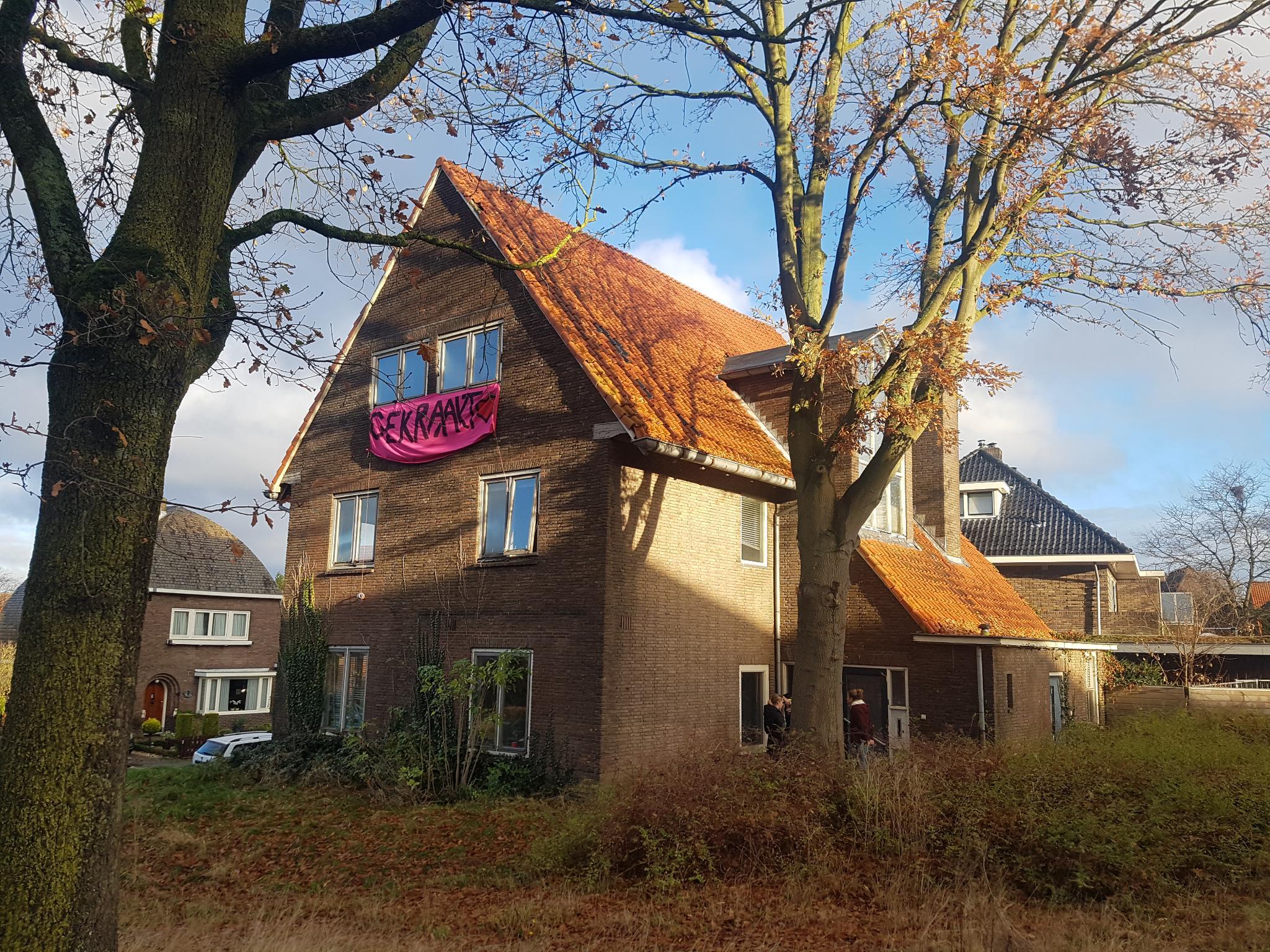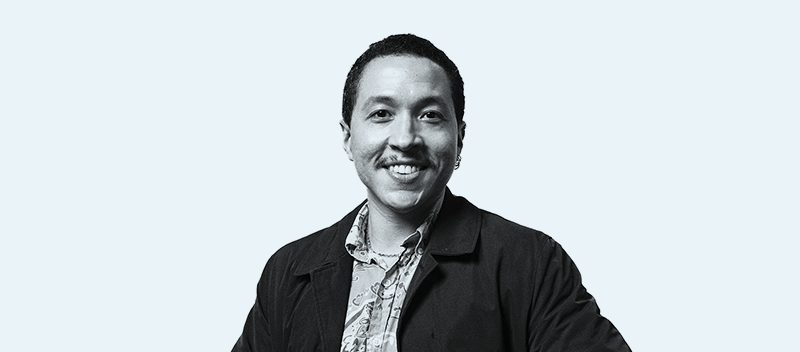A group of nine students squatted a building on the Eekmolenweg in Wageningen last week. They aim to call attention to the housing crisis but also hope they can remain in the building.
Funny detail: the building was once the headquarters of Resource’s predecessor: WB. Later, care agency Zideris bought the property. The building was uninhabited for some time. A waste, according to the squatters. ‘The squat is a political protest’, says one of the squatters. ‘Although half of the squatters do not have a permanent home at this time, myself included, our aim is to show that vacancy is a waste and squatting is an option. But it would be great if we could stay here.’
We were prepared for everything, but our dialogue with the police and the owner is quite relaxed.
Squatting has been prohibited by law since 2010 and can theoretically lead to a prison sentence. Did this worry the students? ‘We consulted with a lawyer and with other squatters beforehand. Lately, there have been regular squats in the Netherlands, and we have seen what risks we face. We were prepared for everything, but our dialogue with the police and the owner is quite relaxed. We hope to reach an agreement.’
So far, their focus lies on making the property liveable. ‘There is much to be done. We are cleaning it, getting rid of the trash and doing repairs. The garden also needs some love. The neighbours, who brought us flowers and cookies, said they would love to see something nice in the garden. So, if anyone has timber or plants at home, they are more than welcome to let us know. May we put out a call?’
Comment by Zideris:
Zideris bought the property in 2019, intending to construct future-proof housing for people with mental disabilities. The plans are ready, but construction was delayed due to, among other things, corona. ‘We are aware of the current housing crisis and will remain in dialogue with the students. We hope to reach an agreement that does justice to the interests of the neighbours and our clients. They have, however, chosen an unfortunate moment. In the face of the COVID situation, we would have preferred to invest our energy in the continuity of our care.’

 Private photo
Private photo 

